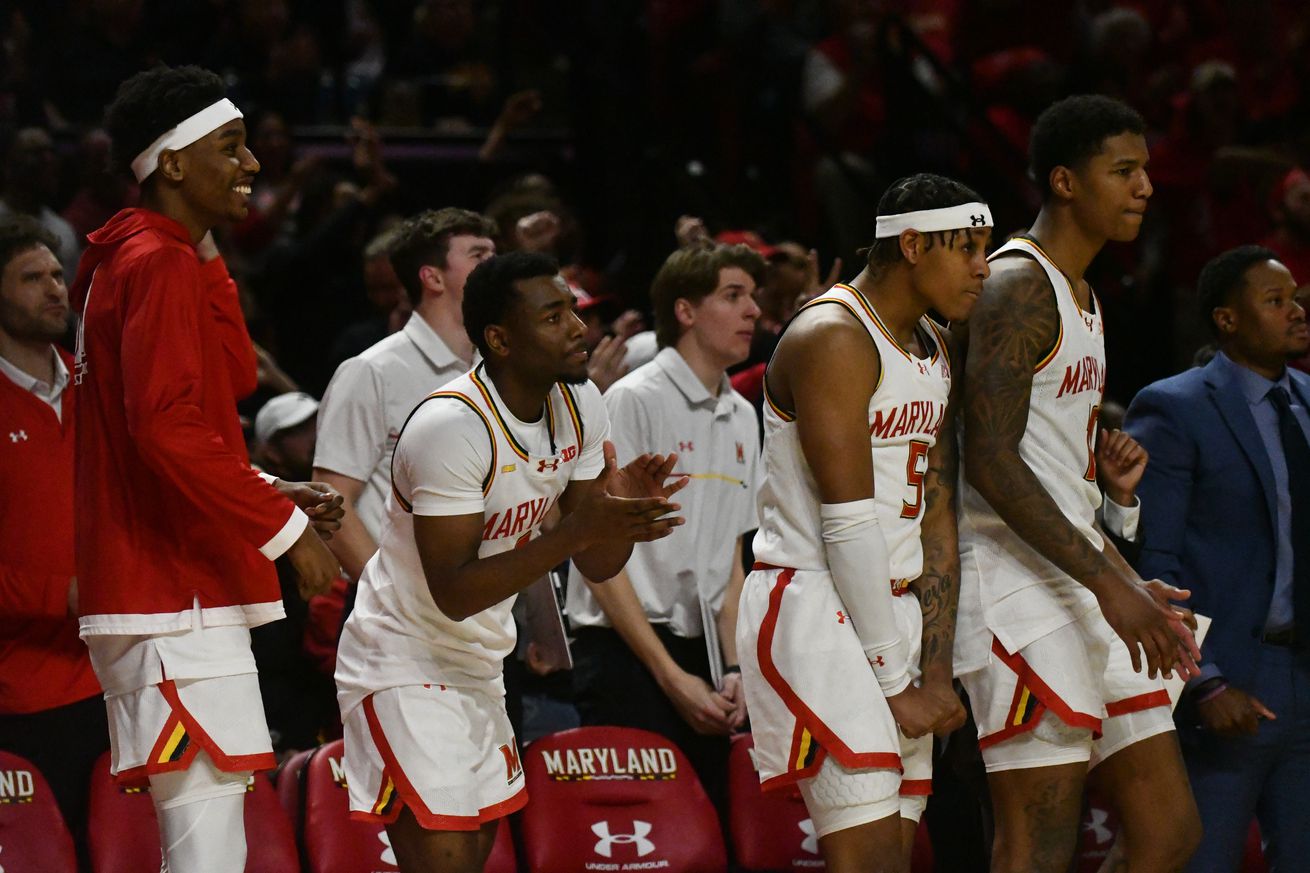
The Terps’ starters score more than 85% of their points.
No. 13 Maryland men’s basketball’s “Crab Five” — the name given to the team’s starting five — has received national recognition and catapulted the Terps into Final Four conversations.
But while the starters have carried Maryland to success, one pressing question remains: Do the Terps have enough depth to thrive in the postseason?
The starting five — Ja’Kobi Gillespie, Rodney Rice, Selton Miguel, Julian Reese and Derik Queen — has logged heavy minutes all season. Each has played at least 817 minutes, with Gillespie leading the way at 902. DeShawn Harris-Smith, who has started four games, is the Terps’ top option off the bench, but has played only 454 minutes.
The Big Ten Tournament will likely require Maryland to play three or four games in rapid succession. The NCAA Tournament’s high-paced nature adds another layer of fatigue. Can a team that relies so heavily on its starters hold up under that kind of strain?
Maryland typically runs an eight-man rotation, with Harris-Smith providing key backup guard minutes. Jay Young, averaging 11.2 minutes per game, is another option, while head coach Kevin Willard usually rotates between Jordan Geronimo and Tafara Gapare in the frontcourt.
Defensively, the bench is solid.
Geronimo is an electrifying, athletic player. He has a 9.0% block percentage, per Sports Reference, and has racked up 16 total rejections this year. Combined with fellow bench player Gapare, the two have amassed 37 blocks. Geronimo also has a 17.6% defensive rebound percentage.
Young has 18 steals on the year in 324 minutes played. He also has a defensive box plus-minus of 5.3, which estimates the number of defensive points per 100 possessions a player contributed above a league-average player, per Sports Reference. That’s far more than his 2.5 and 3.1 marks over the past two seasons at UCF and Memphis, respectively.
But offensively is where concerns arise.
Gapare owns the highest single-game point total among reserves, with 19, but that came against Bucknell. Harris-Smith has just one double-digit performance all season, a 10-point outing against Alcorn State.
In Maryland’s loss to No. 8 Michigan State, Rice was the only starter to shoot well, scoring 20 points on 6-of-12 shooting. The rest of the starters struggled, especially Miguel, who picked up two early fouls and finished with six points.
Willard turned to Harris-Smith for extended minutes, but he failed to score in 17 minutes. Young and Geronimo, the other bench players to see action, also put up zero points. With the starters shooting just 15-of-46, Maryland simply didn’t have enough secondary scoring to keep up.
That’s a troubling sign for a team whose starters account for a staggering 85.1% of its total scoring. Maryland’s bench has also gone scoreless in three of its last five games. In a win over USC on Feb. 20, Maryland’s bench managed just three of the team’s 88 points. Still, Willard dismissed concerns about the reserves’ production, simply saying, “No,” when questioned.
Despite the limited offensive output, the team believes in its depth.
“[The bench] does a lot of things outside of scoring the ball, things that don’t show up on the stat sheet,” Reese said. “It can get kind of boring when people are not playing as much and just you can kind of lose focus. But our guys don’t do that.”
Reese, who has struggled with foul trouble in the past, has improved in that area, fouling out just three times this season. But if he or another starter gets into foul trouble or injured during postseason play, Maryland may need an unsung reserve to step up.
The only question left is whether someone will rise to the occasion.
“[The bench] just waits for their number to be called like they’ve been doing the whole season,” Reese said. “So, if they just keep doing that, we’ll be good.”
